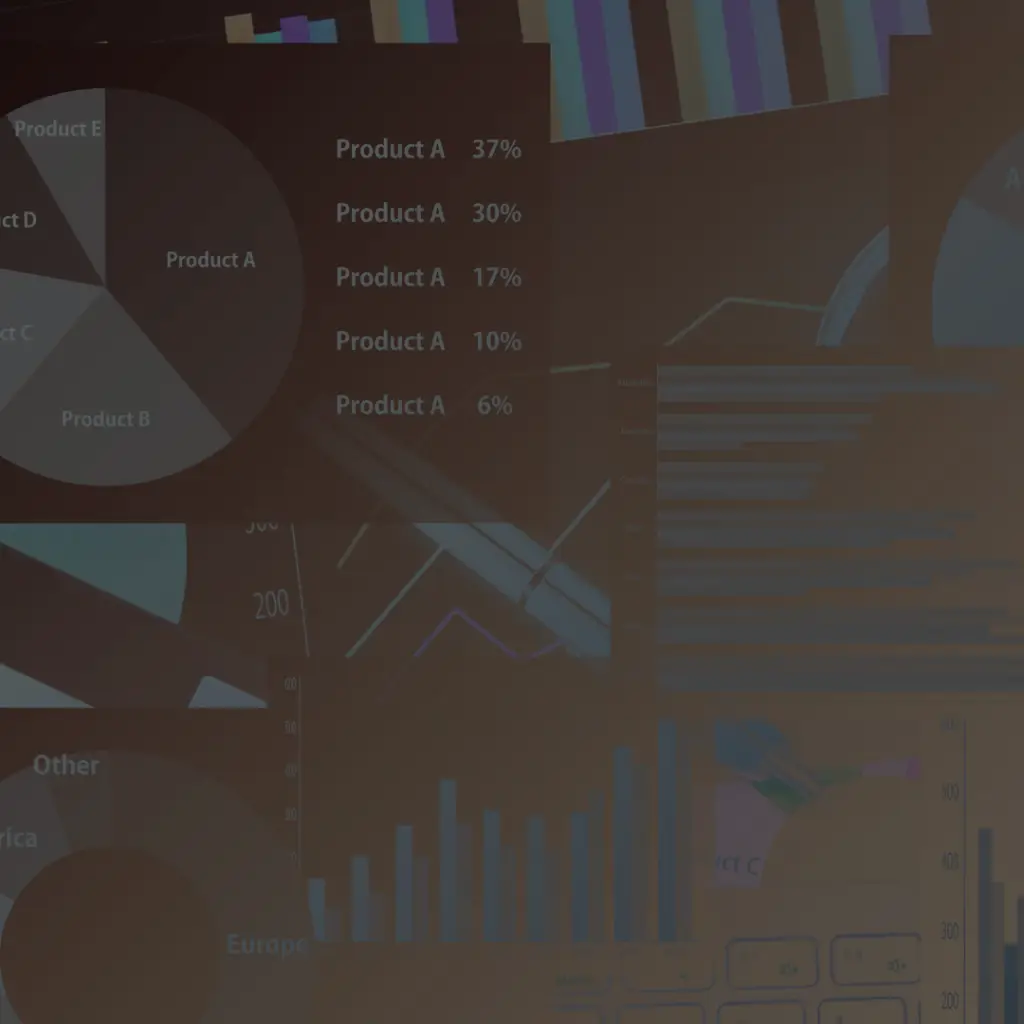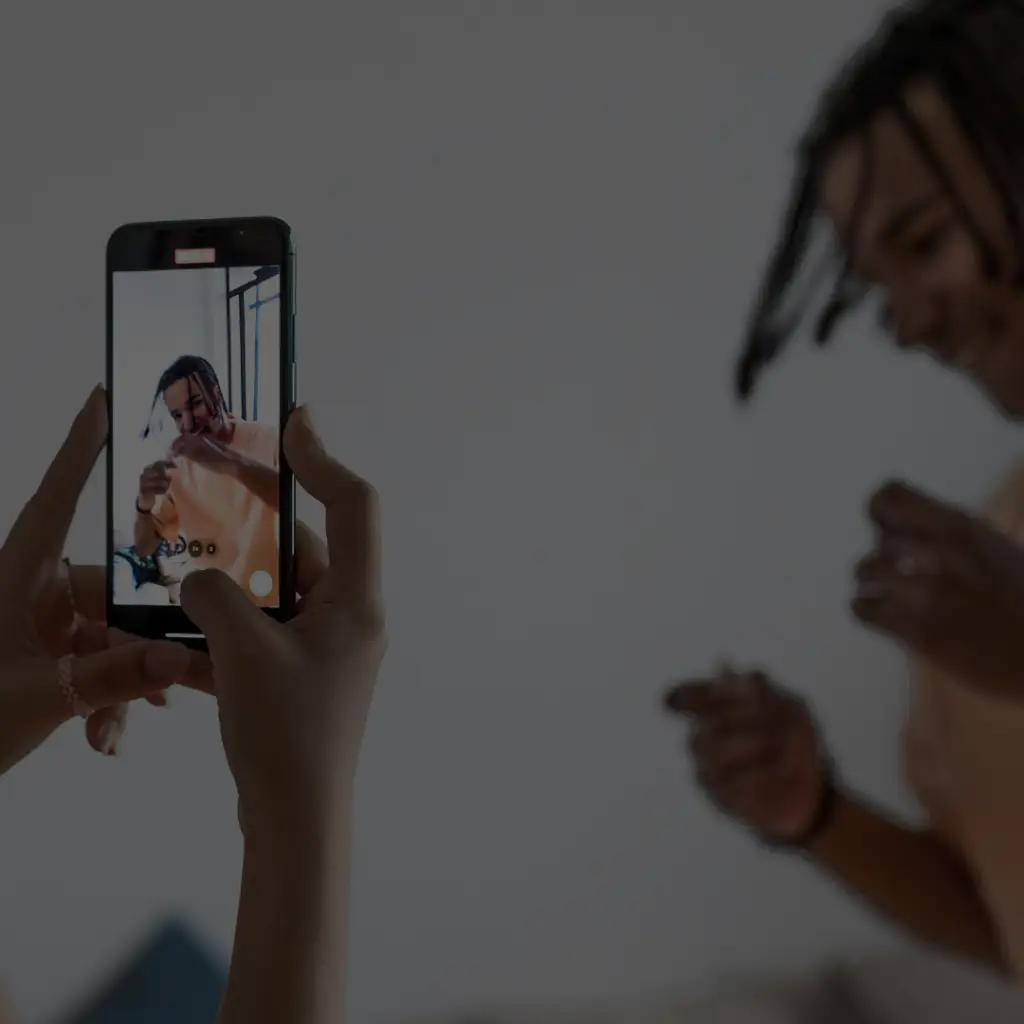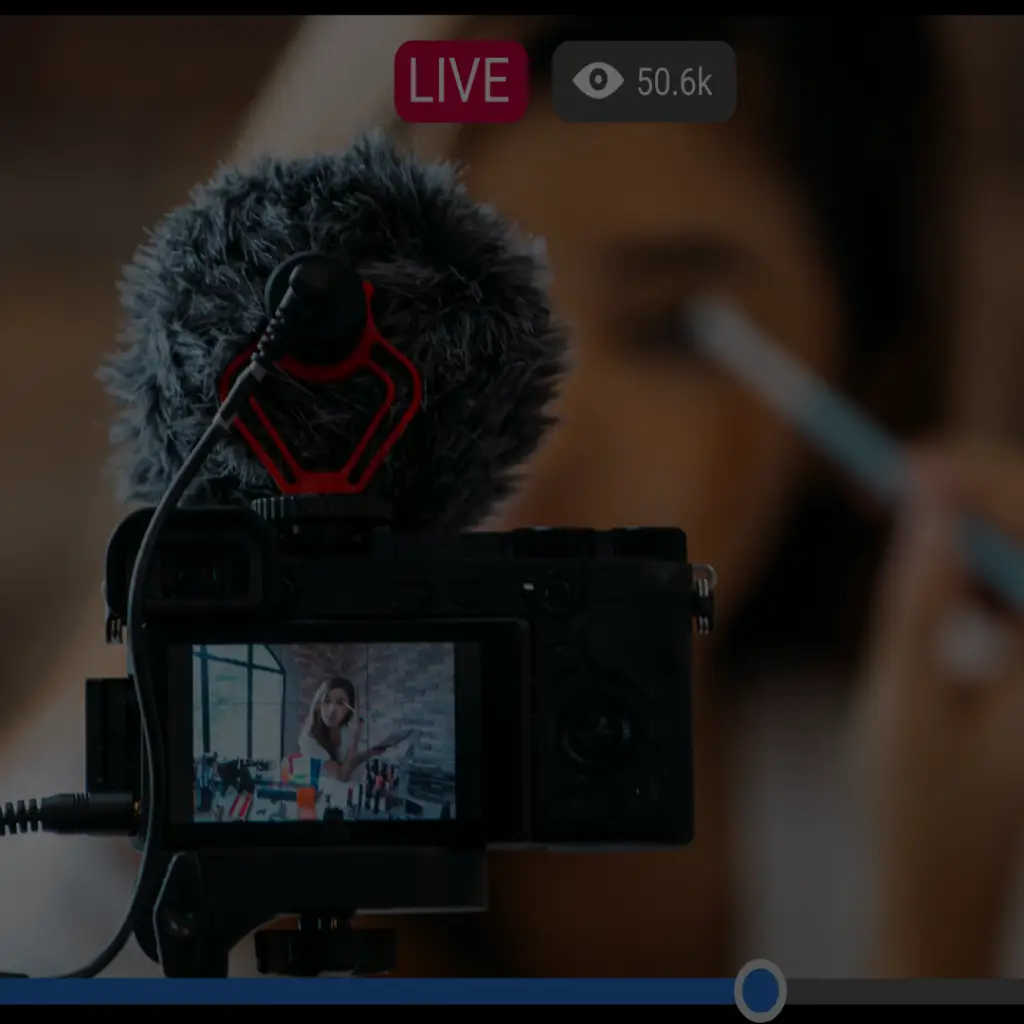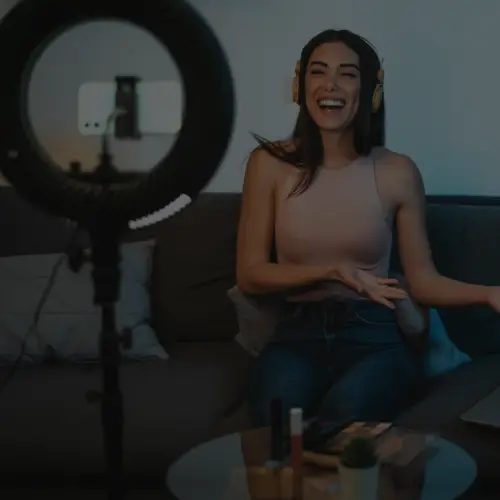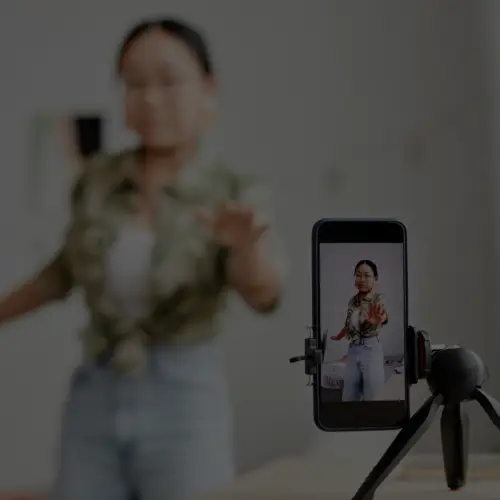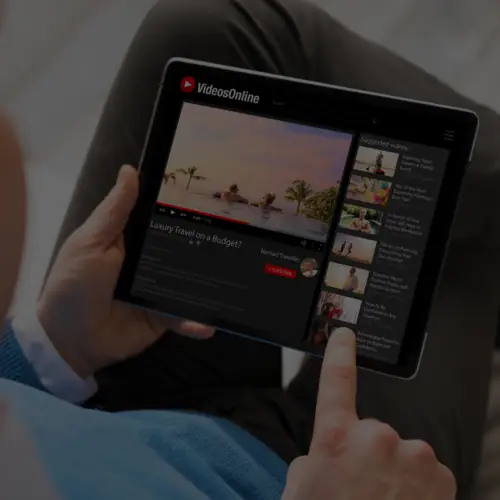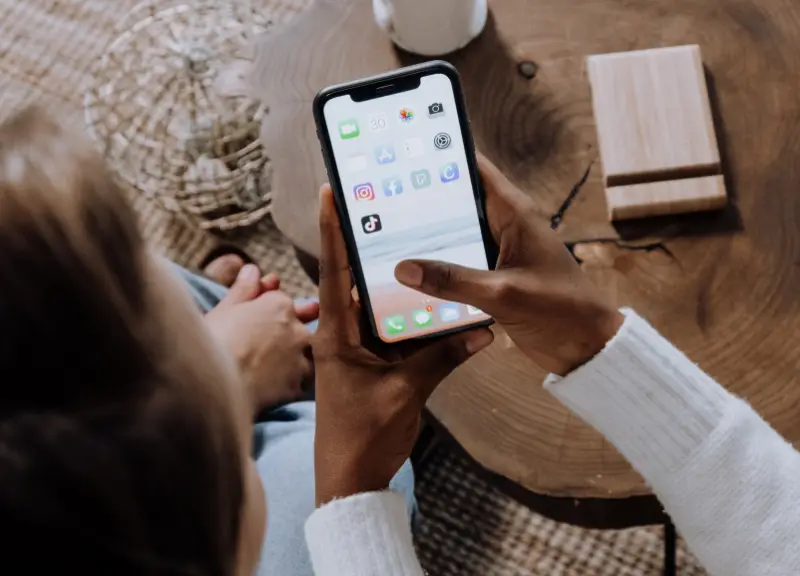
18 Jan What Does the Talk on TikTok Ban Means for Brands?
2023 took off to a good start of the year. But is it for TikTok? Social media (and legislators) have been creating non-stop noise about a possible U.S. TikTok ban. Today, let's unfold some of this and what it means for brands.
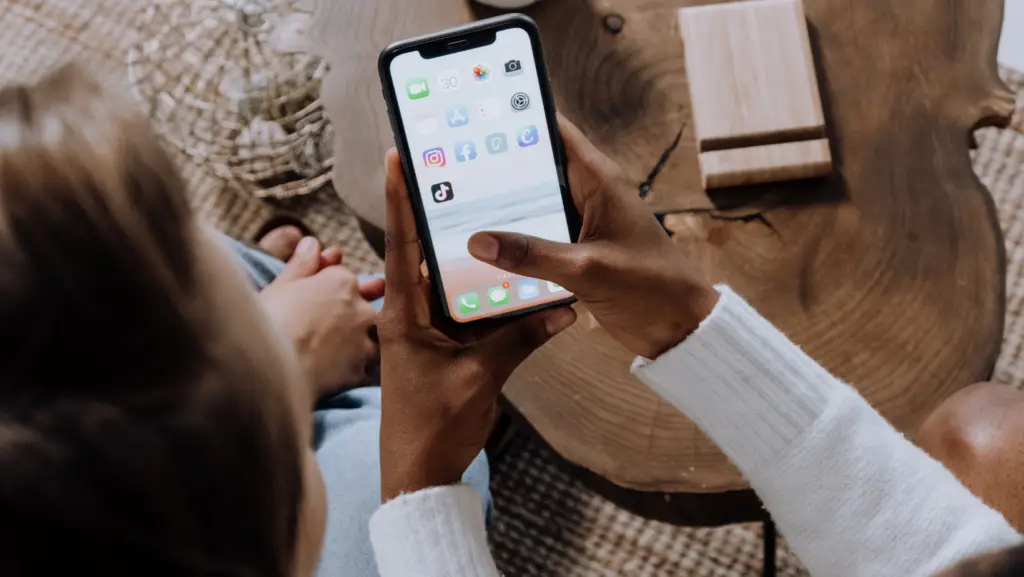
With a possible United States-wide TikTok ban being debated in Washington, American brands are growing increasingly worried about their TikTok presence.
What does this mean for brands? Before we get overly excited about changes, here’s what’s actually happened so far, what might happen next and how we think you can prepare for this.
What Actually Happened
At the center of this potential U.S. TikTok ban are security concerns posed by ByteDance’s ownership, which would make it subject to the laws of the Chinese Government. This has caused U.S. lawmakers to become increasingly skeptical of TikTok as a potential security risk, worrying that the Chinese government may be able to access U.S. user data collected by the app.
The possible TikTok ban is also coming at a time of impatience with a federal national security review and negotiations with TikTok that have lasted months, receiving criticism from the FBI for not being resolved quickly enough.
Despite all the uncertainty surrounding TikTok, brands should remain focused on their TikTok presence and continue to assess their TikTok marketing strategies.
Who Do the Bans Impact?
On Thursday, December 29, Joe Biden signed a bill that would ban TikTok on federal government devices. This ban means that in about 2 months, all federal government employees will be required to remove TikTok from their government-issued devices, impacting nearly 4 million devices. Additionally, some federal agencies have already removed the app from their devices.
While the U.S. Senate considered banning TikTok on federal devices as part of its end-of-year spending bill, today at least 16 states have already banned TikTok for state employees over the holidays. These state government bans are impacting some students and faculty at public universities, with Universities like Oklahoma and Auburn banning TikTok from University-owned devices and from being accessed by students and/or faculty via University-owned Wi-Fi connections.
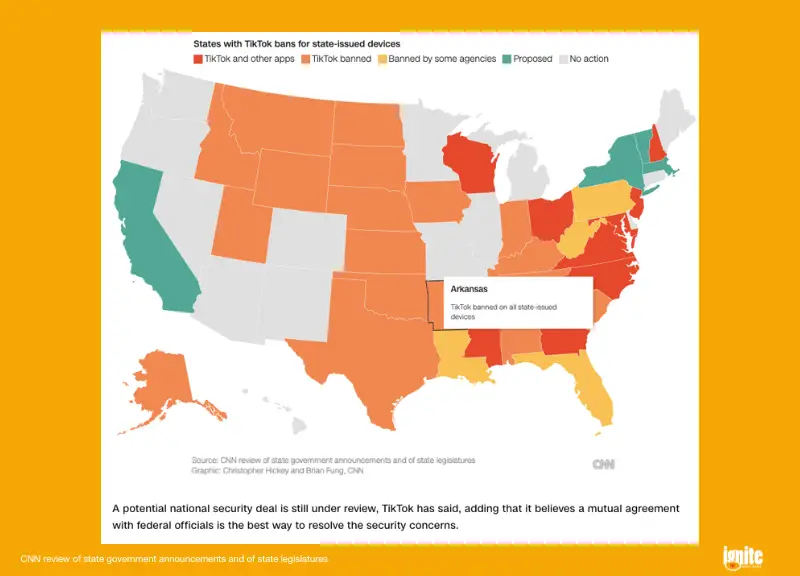
On that note, the viability of a U.S. ban still needs to be determined. Whether or not the ban on TikTok will stop at the state and federal staff levels is not yet clear. A bill by Senator Marco Rubio to ban TikTok in the U.S. was proposed at the start of this year, but it’s unclear whether it will pass. But remember, India banned TikTok in 2020, so there is precedent.
Is a U.S. Sale a Potential Solution?
To address concerns, there is speculation that U.S. government officials are calling on TikTok to sell its U.S. unit to a U.S.-based company to address concerns of ByteDance ownership. This still feels like a last resort, as TikTok’s public statements show the app still trying to negotiate terms with the US government.
How is TikTok Responding?
All of these bans and potential TikTok sales are putting TikTok in a tight spot. Even if TikTok does not get sold, TikTok will likely have to make some changes as it continues negotiations with US officials.
However, TikTok has long said that it stores U.S. user data within the U.S. and does not comply with Chinese government content moderation requirements. But the company has come under increasing scrutiny in recent months, and in July it acknowledged that non-U.S. employees did in fact have access to U.S. user data.
In fact, last October, Forbes reported that ByteDance planned to use TikTok “to monitor the personal location of some specific American citizens,” which the company denied.
According to a recent Reuter’s report, TikTok is working on voluntary measures to increase security while remaining with Bytedance ownership. This includes an expanded deal with Oracle, including a proposed “proxy” board that would run the USDS division independent of ByteDance and reviews at “transparency centers” visited by Oracle engineers. It has reportedly spent $1.5 billion on hiring and reorganization costs. Whether or not these measures will ease the concerns of government officials are still to be determined.
A recent update noted that hiring for the key consultants that may have allowed TikTok to reach a deal with the US government has currently been halted, and put on hold until the end of January. This has led many to believe a deal is still not in reach, although this is still speculation.
What Should Brands Do?
At this point, it’s unclear if a US-wide TikTok ban is coming or if the extent of the state bans will cause an agreement to be reached more quickly. From a brand standpoint, this leads to a bit of a wait-and-see approach, with little risk to brands continuing existing efforts on the platform to reach users for the time being.
Additional questions to consider for your specific brand may also be worth exploring during this time, including:
- Do you have any unique circumstances that may require you to consider the political debate as well as the potential marketing benefits?
- Do you have any sensitive data that may reside on employees’ company-issued devices?
Even if TikTok is ultimately banned, we believe the TikTok format will remain popular on other apps including Instagram Reels, YouTube shorts, and Snapchat.
View our blogs for more social media marketing resources.
Should Your Brand Use AI Influencers? The Pros and Cons
AI-generated influencers are making waves in social media marketing. These virtual personas promise brands full…
How to Make a Great Social Media Report
Creating a social media report that is just an export from a tool or screenshots…
April Fool’s Day Campaigns: The Best and Worst Brand Pranks
April Fool’s Day is a golden opportunity for brands to showcase their creativity, humor, and—when…
Best Practices for Creating Engagement-Focused Short-Form Videos
Maximizing engagement with short-form videos isn’t just about hitting “post” and hoping for the best….
Best Practices for Creators Going Live on TikTok
We recently launched the Ignite Social Media TikTok Live Creator Network, and we’re excited to…
Spring Clean Your Social Media Accounts: A Complete Checklist for 2025
Admit it. It’s been forever (or never) since you’ve gone back through your brand social…



